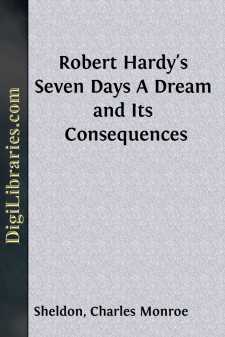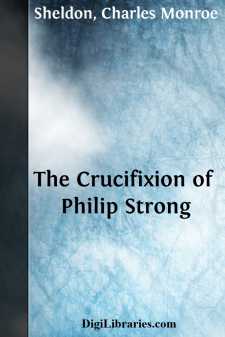Categories
- Antiques & Collectibles 13
- Architecture 36
- Art 48
- Bibles 22
- Biography & Autobiography 813
- Body, Mind & Spirit 142
- Business & Economics 28
- Children's Books 17
- Children's Fiction 14
- Computers 4
- Cooking 94
- Crafts & Hobbies 4
- Drama 346
- Education 46
- Family & Relationships 57
- Fiction 11829
- Games 19
- Gardening 17
- Health & Fitness 34
- History 1377
- House & Home 1
- Humor 147
- Juvenile Fiction 1873
- Juvenile Nonfiction 202
- Language Arts & Disciplines 88
- Law 16
- Literary Collections 686
- Literary Criticism 179
- Mathematics 13
- Medical 41
- Music 40
- Nature 179
- Non-Classifiable 1768
- Performing Arts 7
- Periodicals 1453
- Philosophy 64
- Photography 2
- Poetry 896
- Political Science 203
- Psychology 42
- Reference 154
- Religion 513
- Science 126
- Self-Help 84
- Social Science 81
- Sports & Recreation 34
- Study Aids 3
- Technology & Engineering 59
- Transportation 23
- Travel 463
- True Crime 29
Charles Monroe Sheldon
Charles Monroe Sheldon (1857–1946) was an American minister, writer, and social reformer known for his advocacy of the Social Gospel movement. He is best remembered for his novel "In His Steps" (1896), which introduced the popular phrase "What Would Jesus Do?" and emphasized Christian ethics in daily life. Sheldon was deeply committed to social issues, including temperance, labor rights, and civil rights, and his writings often reflected these concerns. In addition to his novels, he was also a pastor and a leader in advocating for reforms that would better the lives of the underprivileged.
Author's Books:
Sort by:
Chapter One "For hereunto were ye called; because Christ also suffered for you, leaving you an example, that ye should follow in his steps." It was Friday morning and the Rev. Henry Maxwell was trying to finish his Sunday morning sermon. He had been interrupted several times and was growing nervous as the morning wore away, and the sermon grew very slowly toward a satisfactory finish....
more...
CHAPTER I PAUL DOUGLAS and his wife, Esther, were holding a serious council together over their older boy, Walter. "I can't help feeling a little disappointment over the way things are going. I did so want the boy to come into the office with me." "I know," said Esther, with a grave smile, "but he seems to have his mind made up. I don't think we ought to thwart him if he...
more...
THE DREAM. It was Sunday night, and Robert Hardy had just come home from the evening service in the church at Barton. He was not in the habit of attending the evening service, but something said by his minister in the morning had impelled him to go out. The evening had been a little unpleasant, and a light snow was falling, and his wife had excused herself from going to church on that account. Mr....
more...
CHAPTER I. Philip Strong could not decide what was best to do. The postman that evening had brought him two letters and he had just finished reading them. He sat with his hands clasped over his knee, leaning back in his chair and looking out through his study window. He was evidently thinking very hard and the two letters were the cause of it. Finally he rose, went to his study door and called down the...
more...





